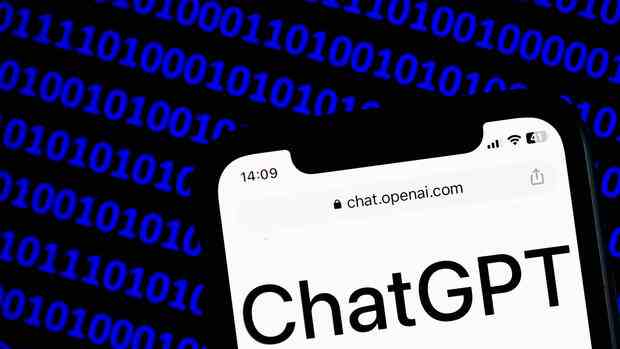Microsoft is investing billions in artificial intelligence.
(Photo: IMAGO/NurPhoto)
A book recommendation to start with: Power and Prediction, written by Ajay Agrawal, Joshua Gans and Avi Goldfarb. Subtitle: “The disruptive economy of artificial intelligence”.
Certainly, there are many such titles with superlatives. But the authors are not only high-ranking experts, they are also refreshingly self-critical. For people with little time, here is the quintessence of the book: AI will be the new electricity.
The success of ChatGPT indicates the evolution we are facing. ChatGPT is a chatbot based on AI that can create dialogues or texts very close to those of humans.
Like electricity in the 20th century, AI will change the economy. New industries, machines and applications will emerge that we cannot know anything about – just as people marveled at the first lightbulb in 1879 but had no idea about computers.
Top jobs of the day
Find the best jobs now and
be notified by email.
Microsoft’s participation in ChatGPT certainly involves a lot of marketing, and the AI tool is anything but reliable and usable. But let’s not fool ourselves: the teething problems will go away, AI will keep getting better.
German companies make a mistake
We are currently in “The Between Times”, as the time phase is called in the book. The potential of the technology has been clear for a number of years, the authors say, but like the calm before the storm, interest has been surprisingly low.
>> Read here: Microsoftboss sees artificial intelligence as a key growth driver
This explains why, according to a survey by the industry association Bitkom a few months ago, only 18 percent of companies with up to 2,000 employees in Germany use AI. For larger companies, it is still around half. At the same time, AI empowers small players in particular.
A negligent attitude, because the “AI whip”, as Agrawal and Co. call it, is threatening. AI rewards innovation and risk-taking, reshuffling the cards across industries. Companies that use AI early make better decisions.
This has consequences for everyone. For example, if restaurants can more accurately predict customer demand for vegetables, it will disrupt the entire supply chain. Farmers used to consistent deliveries have to adapt to new realities.
However, “AI as electricity” also means that individual companies like Microsoft or Google will not have a monopoly on AI, as one might think after the coverage of the AI start-up Open AI and Microsoft. Research is far too broad for this, access to large computer capacities is too easy thanks to the cloud – and last but not least, this is what the Open AI statute says: to develop artificial intelligence that “uses all of humanity”.
More: What is behind the chatbot ChatGPT
